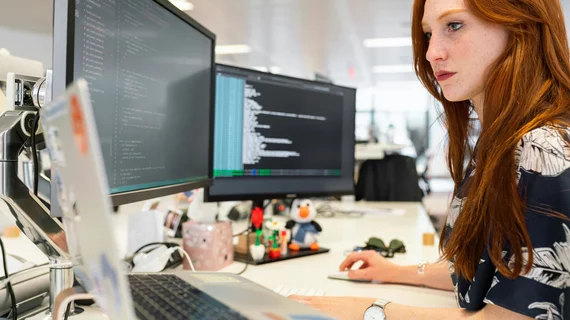Almost 80% of knowledge workers bring their own GenAI to work
Around the world, 3 of 4 workers who routinely handle information—in a phrase, “knowledge workers”—are now using generative AI on the job. And almost half of them are new to the technology, having begun using it only over the past half-year.
What’s more, many knowledge workers are going “BYOAI.” Which is to say they’re bringing their own AI to work. Whether this part of the trend is more troubling than exciting, it’s a disruptive force in the making.
The findings are from a survey of 31,000 individuals across 31 countries, along with analyses of employment trends, “trillions of Microsoft 365 productivity signals” and other data sources. The work was conducted by Microsoft with LinkedIn and published May 8.
“AI is democratizing expertise across the workforce,” says Microsoft chairman and CEO Satya Nadella in introducing the findings. To this LinkedIn CEO Ryan Roslansky adds that AI is “redefining work—and it’s clear we need new playbooks.”
Here are parts of three key sets of findings laid out in the report, along with quotes from expert observers, as presented in a report summary.
Employees want GenAI at work—and won’t wait for companies to catch up.
- 78% of workplace AI users are bringing their own AI to work.
- Gen Z leads the way on BYOAI with 85% penetration, but older generations aren’t far behind: Millennials 78%, Gen X 76% and Boomers 73%.
- While 79% of leaders believe their company needs to adopt AI to stay competitive, 60% of leaders worry their organization’s leadership lacks a plan and vision to implement it.
‘We’re at the forefront of integrating AI to not just work faster, but to work smarter. It’s our responsibility as organizational leaders to ensure that this technology elevates our teams’ creativity and aligns with our ethical values.’—Karim Lakhani, Harvard Business School
For employees, GenAI raises the bar and breaks the career ceiling.
- 66% of leaders say they would not hire someone without AI skills.
- 71% say they’d rather hire a less experienced candidate with AI skills than a more experienced candidate without.
- There was a 142x increase in skills like Copilot and ChatGPT added to LinkedIn profiles last year.
‘These findings align perfectly with how our brains manage the trade-offs between routine task execution and innovation—different kinds of thinking supported by two distinct but interacting neural networks in the brain. When we’re constantly switching, we don’t work as well. AI can help liberate workers from menial work and enable innovation and creativity to flourish.’—Michael Platt, Wharton School of the University of Pennsylvania
Power users use GenAI at least several times per week. They say it saves them more than 30 minutes per day.
- Frequently experimenting with AI is the No. 1 predictor of an AI power user.
- Power users say AI boosts their creativity (92%) and helps them focus on the most important work (93%).
- AI also helps them feel more motivated (91%) and enjoy work more (91%).
‘To stay ahead of the curve, we’ve made AI training a priority to ensure everyone can leverage the power of Copilot for Microsoft 365 and other AI solutions. We also launched the GenAI Academy, supporting employee growth and development with the aim of increasing ambassadors and GenAI power users across the globe. We are already seeing benefits that are transforming the way we work and innovate.’—Sheila Jordan, Honeywell International Inc.
The authors of the report predict the day is coming when workplace generative AI is as ubiquitous as the PC workstation and no less essential.
“Over time, it will change every aspect of work,” they write. “As we reach the hard part of [the present] tech disruption—turning experimentation into tangible business impact—companies that face the challenge head-on will surge ahead. In this moment, fortune favors the bold.”

